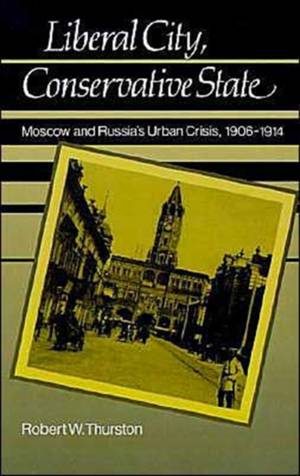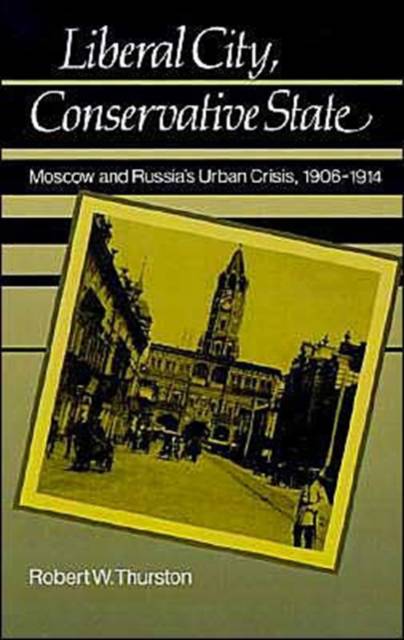
Bedankt voor het vertrouwen het afgelopen jaar! Om jou te bedanken bieden we GRATIS verzending (in België) aan op alles gedurende de hele maand januari.
- Afhalen na 1 uur in een winkel met voorraad
- In januari gratis thuislevering in België
- Ruim aanbod met 7 miljoen producten
Bedankt voor het vertrouwen het afgelopen jaar! Om jou te bedanken bieden we GRATIS verzending (in België) aan op alles gedurende de hele maand januari.
- Afhalen na 1 uur in een winkel met voorraad
- In januari gratis thuislevering in België
- Ruim aanbod met 7 miljoen producten
Zoeken
Liberal City, Conservative State
Moscow and Russia's Urban Crisis, 1906-1914
Robert W Thurston
Hardcover | Engels
€ 305,45
+ 610 punten
Omschrijving
Between 1906 and the outbreak of World War I, Moscow was the locale of great uncertainty and experimentation. Moscow's liberal leaders sought social and political stability for their city following the violence of the 1905 revolution by offering attractive programs in education, employment, housing and other areas to Moscow's unruly lower classes. They were countered in their efforts, however, by central authorities of the Old Regime, who feared the political effects of these programs and stressed social rigidity. Liberal City, Conservative State examines the resulting clash between the city and the state as it brought to the surface and exacerbated the deep tensions plaguing Russia by the eve of World War I. It focuses on the roots of this dispute, juxtaposing the Old Regime's rural background and orientation with the urban concerns of Moscow's liberals, and sees the state's essential failure in its inability to come to terms with the realities of urban life and growth. Providing new perspectives and insights into Russian liberalism, the scope and urgency of urban problems, and the importance of tsarist ideology in conditioning development after 1905, Moscow's story sheds light on the unsolved dilemmas and contradictions that pushed Russia inexorably toward revolution.
Specificaties
Betrokkenen
- Auteur(s):
- Uitgeverij:
Inhoud
- Aantal bladzijden:
- 286
- Taal:
- Engels
Eigenschappen
- Productcode (EAN):
- 9780195043310
- Verschijningsdatum:
- 17/09/1987
- Uitvoering:
- Hardcover
- Formaat:
- Genaaid
- Afmetingen:
- 160 mm x 238 mm
- Gewicht:
- 616 g

Alleen bij Standaard Boekhandel
+ 610 punten op je klantenkaart van Standaard Boekhandel
Beoordelingen
We publiceren alleen reviews die voldoen aan de voorwaarden voor reviews. Bekijk onze voorwaarden voor reviews.









